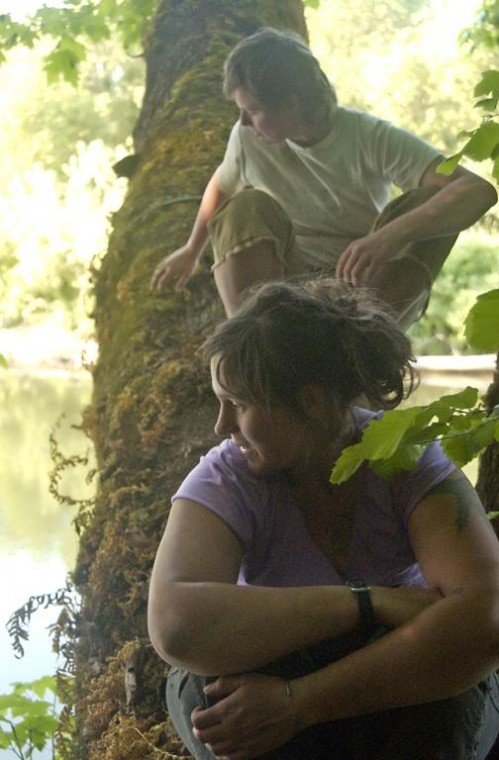


Tuesday: Two minutes after meeting us, Oakville resident Jerry Silcox bestowed upon us an unlikely favor.
One of the downfalls of traveling via river is the ever-present possibility of over-shooting our more urban destinations, distracted by the natural scenes around as we kayak below high banks.
On this day, we had paddled a mile past Oakville, and with it our final opportunity to find some semblance of cooked food.
“There’s a Toyota up there,” said Jones, crouched down by the Elma-Gate boat launch fishing for trout. “Keys are in the ignition. You can take it.”
We both responded in kind, thanking him for the offer but assuring him that it was too generous a gesture. When he told us we were looking at a mile-and-half walk into town, we decided the best thing to do would be to accept this kind man’s offer.
Thirty minutes later we were back on the river and headed toward the small unincorporated town of Porter with full stomachs and thankful spirits.
It was a highlight of a day that featured numerous transitions. We began at 9 a.m. in the Independence Valley after a restful night of sleep on the sandy patch of an otherwise rocky bank.
Our camp was just through the forest from The Wobbly Cart, an organic farm featured in The Chronicle last week. We ran into — or rather floated under — two workers from the farm perched high in a tree overlooking the river. We wouldn’t have noticed their presence had one of them not coughed as we paddled through, interrupting the otherwise natural sounds of the forest.
Marianne Copene and Liza Judge invited us up the banks. We tied our kayaks and talked about their life on the farm. Copene said they had come to the river as part of a near-daily summer ritual.
“This is what we do in the summer,” she said as Judge attempted to swing out over the river on a rope tied to the tree. “We work all day and then run down to the river, strip down and jump in.”
The two maidens of the river were kind enough to bring us a farm-fresh salad a short time later. Aside from three run-ins with a steep bank on which I dropped two flashlights and one oar into the river, our night was as close to perfect as one can come.
We awoke to a bright sun, an indicator of the warm and sunny day to come. We paddled into the territory of the Confederated Tribes of the Chehalis Reservation. After an hour or so, we met Curtis Du Puis, a tribal member who often fishes at the junction of the Black River and the Chehalis River.
He drove us to a couple interesting locations, including the site where the tribe is building a new fish hatchery on Howanut Road and his home, which was built on a mound to protect against flooding.
From there, we continued on down the river in what was at times blazing heat. The numerous cottonwood trees up and down the banks created a virtual blizzard as we paddled against a stiff wind. The gusts are likely a sign of things to come, as we prepare to ride the river west into a heavy ocean breeze in the coming days.
I’ve learned from experience that paddling into the wind is akin to allowing gnomes to hang from the oars. It’s weighty and frustrating.
Thankfully, the river’s current has picked up. Though not as swift as the sometimes rushing waters of the upper basin around Doty and Dryad, it was a welcome change to the portion of river that twists widely through the Centralia-Chehalis area — Lake Twin Cities, as I would call it — where the current comes to a halt and paddling becomes difficult.
What lies ahead is still a question. We are now halfway through our approximately 90-mile journey, and the river and surroundings are changing fast. We’ll soon be within striking distance of Grays Harbor, our final destination.
It’s already been an incredible journey.
On to the ocean.
Eric Schwartz: (360) 807-8245
View Chronicle Trip Down the Chehalis River 2009 in a larger map